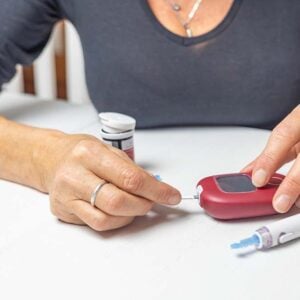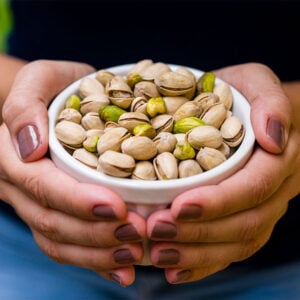
Revolutionary Scan Spots "Ticking Time Bombs" in Your Heart
If you’re over 50, your doctor has probably warned you about your heart health.
And for good reason.
Heart disease is the #1 killer in America. It claims more lives than all forms of cancer combined.
But here’s the scary part: Many people have no idea they’re at risk until it’s too late.
That’s because heart attacks often come out of nowhere, striking without warning.
But what if scientists found a way to spot these “ticking time bombs” in your heart before they explode?
First, let’s talk about what a heart attack really is.
Imagine your coronary arteries—the blood vessels that feed your heart—as highways. Sometimes, “potholes” form in these highways. We call these potholes “plaques.”
Most of the time, plaques just sit there, not causing any trouble. But sometimes, they can rupture. When that happens, it’s like a massive pileup on the highway. Blood flow to your heart stops, and you have a heart attack.
Here’s the problem: Until now, doctors couldn’t tell which plaques were likely to rupture. But that’s all about to change.
Researchers in the UK have developed a new way to find these dangerous plaques using something called PET imaging.
Here’s how it works:
- They inject a special dye into your bloodstream.
- This dye is attracted to “hot spots” in your arteries—places where plaques are inflamed and likely to rupture.
- Then, they use a PET scanner to see where the dye has collected.
It’s almost like having a crystal ball that can predict where a heart attack might happen.
In their study, they found that:
- Arteries with these “hot spots” were twice as likely to cause a heart attack.
- About 40 percent of patients who’d already had one heart attack had these dangerous plaques in other arteries too.
- Even arteries that didn’t look narrowed on a regular scan could have these ticking time bombs.
Knowing you have these dangerous plaques could change your treatment in big ways.
Your doctor might put you on more aggressive anti-inflammatory treatments or a different treatment altogether. In some, more severe cases, you might even need a stent to open up the artery before it causes problems.
But the best part is, this test isn’t nearly as invasive as other heart tests. No poking around inside your arteries. No dye injected directly into your heart. Just a simple injection in your arm and a scan.
Now, this test isn’t available everywhere yet. But I predict it will be a game-changer in heart disease prevention.
In the meantime, don’t wait for a new test to take care of your heart. There’s plenty you can do right now. Eat a heart-healthy diet rich in fruits, vegetables, and omega-3 fatty acids. Exercise regularly—even a daily walk can make a big difference.
Manage your stress levels with techniques like meditation or deep breathing. If you smoke quit. Monitor your blood pressure. And get your small, dense LDL (sdLDLox) checked. This form of oxidized LDL triggers inflammation and is the true culprit behind heart disease.
Remember, when it comes to your heart, an ounce of prevention is worth a pound of cure.
P.S. CLICK HERE to discover the silent heart condition affecting 25 percent of seniors.
SOURCE:
Wang, K.-L., Balmforth, C., Meah, M. N., et al., (2024). Coronary Atherosclerotic Plaque Activity and Risk of Myocardial Infarction. Journal of the American College of Cardiology, 83(22), 2135–2144.
Written By Dr. Richard Gerhauser, M.D.
For years he’s been the trusted doctor for celebrities, world-class athletes, and countless seniors looking to reclaim their health.
And now…for the first time ever… he’s making his medical breakthroughs available to readers all across America.
Dr. Richard Gerhauser, M.D. is one of the most pioneering and innovative minds in medicine today – and he delivers cutting-edge cures each month through his Natural Health Response newsletter.
Natural Health Response readers get full access to Dr. Gerhauser’s protocols for chronic pain… heart disease… diabetes… Alzheimer’s… and even cancer. These are the very same treatments Dr. Gerhauser recommends to his own patients at his practice in Tucson, Arizona.
In addition to being a board-certified medical doctor, Dr. Gerhauser has earned two master’s degrees and has served as a clinical professor at the University of Arizona.
And as a physician at the world-famous Canyon Ranch, Dr. Gerhauser treated celebrities from around the world who paid dearly for the type of next-generation health information he provides Natural Health Response readers each month.
View More Free Articles
5 Ways to “Beat the Bloat” This Thanksgiving
As we prepare for Thanksgiving week, there’s a lot to look forward to and be thankful for. Family gatherings, football games, great food, and even better desserts top the list. Then there are all the leftovers. It’s not a holiday that’s known for moderation. But if you’re not careful, overdoing it on Thanksgiving could leave […]
Eat THIS to Reduce Your Risk of 14 Cancers
I’m a meat-and-potatoes guy. I’ll never turn down a big, juicy steak. But even more than that… I’m a fish guy. There’s not much I like more than a perfectly grilled salmon. I hope you do, too, because salmon contains two potent nutrients tied to a reduced risk of 14 types of cancer. Omega-3s are […]
The Bad Habit Robbing YEARS from Your Life
I often get eye-rolls when I stress just how essential lifestyle factors like light reducing pollution and grounding are good for health. But new research continually proves that I’ve been right all along. Today, a critical new study shows that something I’ve warned you about for YEARS is tied to a 34 percent increased risk […]
Reduce Colon Cancer Risk by 30%
More than 150,000 people are diagnosed with colorectal cancer yearly. Another 35,000 will get a liver cancer diagnosis. But if you have type 2 diabetes, your risk of developing one of these skyrockets—a 47 percent increased risk of colorectal cancer, and a two to three times higher risk of liver cancer. That’s why I’m excited […]
“Dinner Plate” Danger Raises Prostate Risk
Did you know that prostate cancer is FAR more prevalent in developed parts of the world than in less developed regions? Strange right? What is it about our modern, developed society that’s attacking our male population? There are MANY answers to this question. The primary one I will focus on today is a significant environmental […]
The 5-Minute Solution to Better Blood Pressure
Are you one of the millions who battle the so-called “silent killer” hypertension? And do you have five minutes to spare daily? If so, you could be well on your way to significantly healthier blood pressure. Sound too good to be true? A new study proves it. And the best part? It’s incredibly easy If […]
“Eye-Opening” Benefits of Pistachios
Imagine if there were a daily snack that could protect your vision. Well, a recent study brings good news for the 20 million U.S. adults already battling macular degeneration—the leading cause of vision loss for those over 60. Adding a handful of pistachios to your diet might help shield your eyesight. Let’s take a “look.” […]
Get Better Blood Sugar This Holiday Season
Let’s face it. The holidays are NOT good for your waistline… or your blood sugar levels. Potlucks, family dinners, cookie exchanges, Christmas parties… you know the drill. So, if you’re one of the 98 million people on the brink of type 2 diabetes, it’s VITAL to take steps to manage your blood sugar levels as […]
Common Vitamin Is a Hidden Colon Cancer Shield
With aggressive colon cancer on the rise in younger people, I’m always on the lookout for research showing how we can all lower our risks. Over the past few months, I’ve shared studies showing that stress, oral bacteria, obesity, and circadian disruption are all tied to colon cancer. And just last week I revealed how […]
Ditch Dieting for Better Blood Sugar Control
I’ll just say this right upfront… Type 2 diabetes is a lifestyle issue. And while diet is PART of the equation, it’s not the only thing to consider when managing your blood sugar. Over the past few months, I’ve highlighted research showing that factors like your bedtime and activity levels impact diabetes risk. Today, I […]










